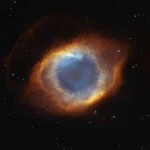Dear Harvey Ray: Is there proof of God? Can science prove that God doesn’t exist?
Signed,
Hopelessly Devoted
Dear Hopelessly Devoted: No, science cannot. In fact, nothing can. Yet we can be certain that God doesn’t exist — by virtue of the very nature of proof.
The meaning of proof precludes proving something for which there is no evidence.
God is primarily of metaphysical and ethical import. Proof, on the other hand, is epistemological.
Proof is an overwhelming preponderance of evidence that admits no alternative.
Proof, by definition, requires evidence. Indeed, proof is evidence.
For this reason, the attempt to prove something for which there is no evidence is a contradiction in terms. The philosophy of science presupposes this principle, but historically, up to the present day, it’s been poorly defended.
You’ve no doubt heard the platitude: “You can’t prove a negative.”
The reason this statement contains a kernel of truth is that proof requires data, as opposed to an absence of data. And that is why the burden of proof falls upon the person making the claim.
If, for example, you claim that little green men exist inside the human brain, and that these green men are responsible, through an intricate process of lever-pulling, for human consciousness, it is you who must prove this — by providing data — and not us who must disprove it.
What you’re really referring to in your excellent question is a thing epistemologists call evidentialism, or the law of the arbitrary.
If the onus of proof were on me, for instance, to prove that these little green men didn’t exist, what, may I ask, do you think that would entail?
I’ll tell you:
Among other things, it would entail that anyone could say whatever he wanted about anything, regardless of data, and I’d have to spend the rest of my life trying to prove him wrong without any data, while he sat back and fabricated more arbitrary claims. And, indeed, many people do just that.
Fortunately for the human race, this is not how the reasoning process actually works.
The proper response to these claims is simply to dismiss them categorically for what they actually are: neither true nor false, but whimsical — that is, arbitrary — until some hard evidence is put forth. But the evidence must come first, before the claim.
That is what you must always remember.
Evidence constitutes proof.
Merely claiming does not constitute evidence; that’s too easy.
Thus, if you claim God or if you claim green men, it is you, not me, who must produce the data.
Epistemologically, there’s no significant difference between green men, God, the Great Spirit, or, for that matter, Grendel.
Which is why for the mystically inclined, fideism is the best bet, although fideism too runs spectacularly aground, but in other ways, less epistemolgic, perhaps, but clearly more dramatic.


